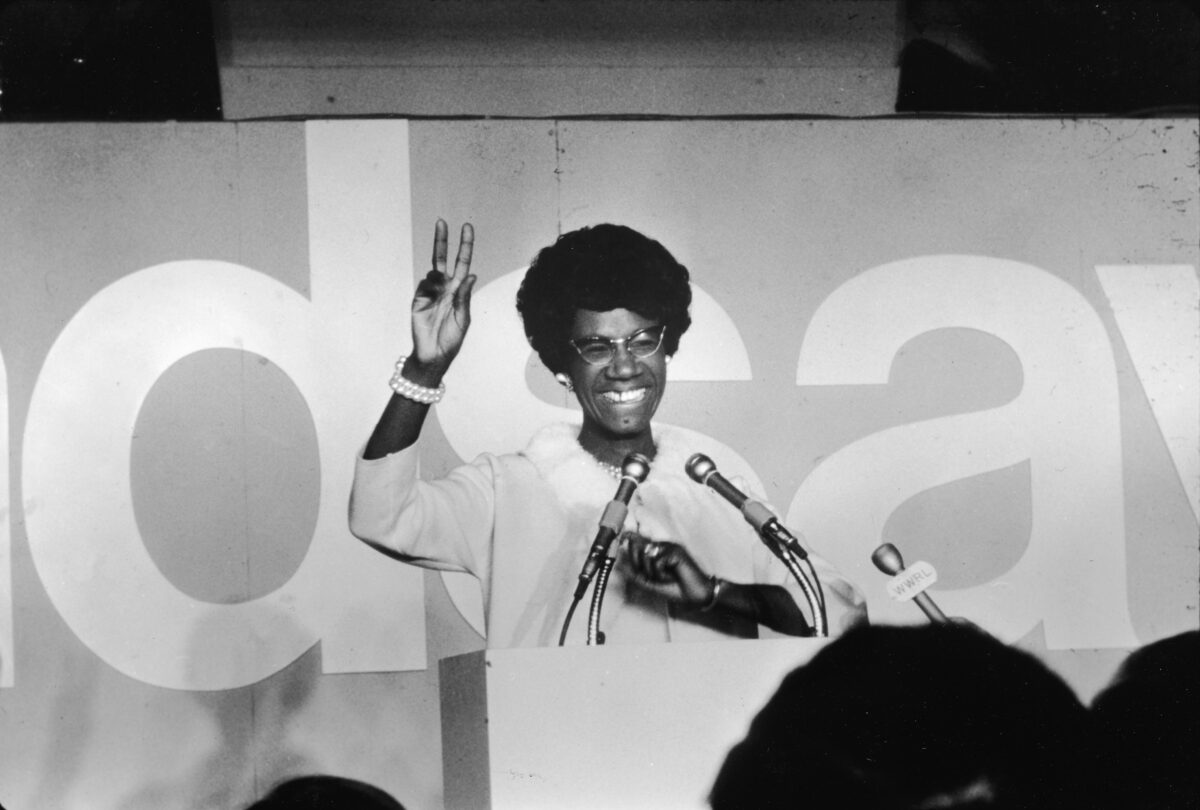Justice Ketanji Brown Jackson is the Latest Sign of a World Changing for — And Being Changed By — Black Women

Pictorial Parade/Getty
Somewhere, Shirley Chisolm cannot contain her broad smile. And perhaps she is joined by Barbara Jordan, and maybe even Harriet Tubman.
The list of (recognized) historic women of color isn’t nearly as long as it should be, sadly, but that fact is now changing at a rather remarkable rate. One might even call it a tipping point.
Justice Ketanji Brown Jackson was confirmed Thursday as the first Black woman to sit on the Supreme Court. Those unwilling to celebrate this moment, and those who dismiss it as an overly aggressive focus on identity politics, are also parading their own very limited sensibility and awareness.
The highest court in the land now, for the first time, features a Black woman. And with that, something it has never had presented in its deliberations: the thoughts and perspective of the American experience as seen through the eyes of a Black woman.
While she deserves all the praise that is due, and we may be tempted to pat ourselves on the back for this moment in time, it’s a rather astonishing indictment that it wasn’t until 2022 that a Black woman judge rose to the very highest ranks.
The thing is, Justice Jackson’s rise isn’t just about her. It’s also perfectly emblematic, at least in my esteem, of a new age of powerful Black women who are not just allowed on the largest stages, but are featured.
Take a look at cable news channels. There is a preponderance of Black women hosting or appearing regularly across the dial. Joy Reid and Tiffany Cross at MSNBC, Harris Faulkner at Fox News, Sara Sidner, Laura Coates, and now Audie Cornish at CNN.
And this influence isn’t limited to who is in front of the camera. Rashida Jones presides over MSNBC. Kim Godwin presides over ABC News. Both are the first Black women to oversee cable and broadcast news outlets respectively.
Nikole Hannah-Jones merits inclusion for her award-winning 1619 Project, which forced us to look at US history in a very different way. You can see a terrific example of her influence in a recent interview with Chris Wallace that was at times spirited, but always a respectful and informative exchange of ideas.
Lest we forget perhaps the most influential harbinger of this new era: Michelle Obama. The former First Lady has been named the most admired woman in the world from 2018 to 2020 (it was not asked in 2021.) And of course, Vice President Kamala Harris cannot be excluded for her part in making history.
It wasn’t that long ago that the most visible women of color in politics were Gwen Ifill and Condoleeza Rice. I am overlooking numerous voices, but the point is this: how very different that is today, and we are all better for it.
So, apart from the historic nature of Justice Jackson’s nomination, why is this so important and worth memorializing? Because forever in American society, Black women have been on the lowest rung of social status and mobility. There are multiple sets of data that demonstrate specifics, but things are improving. And regularly seeing and hearing the perspective of Black women in political media should only bring more equality.
Finally, nearly 250 after the founding of this great nation, the perspective of Black women is a feature and not a bug. It’s about damned time.
This is an opinion piece. The views expressed in this article are those of just the author.





Comments
↓ Scroll down for comments ↓